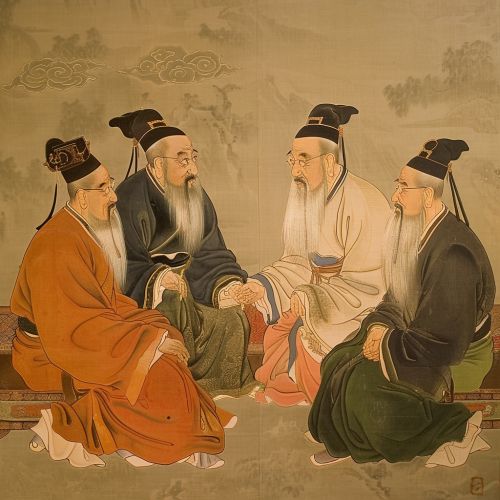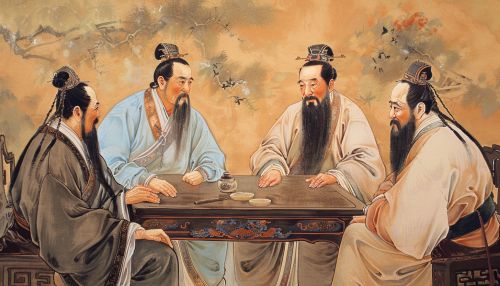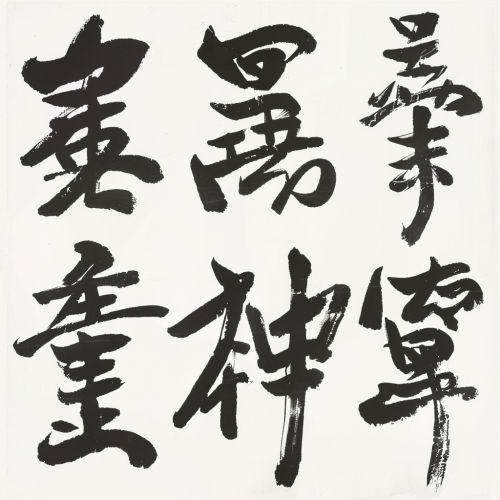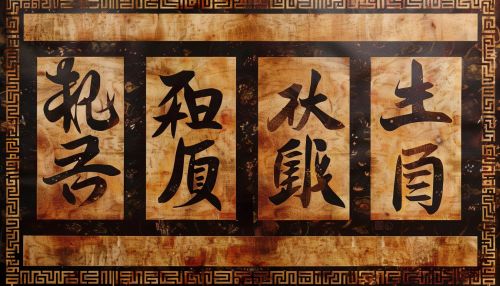Chinese Philosophy
Origins and History
Chinese philosophy originates from the Spring and Autumn period and the Warring States period, during a time known as the "Hundred Schools of Thought", which was characterized by significant intellectual and cultural developments. It was during this time that the major philosophies of China, Confucianism, Taoism, and Legalism, were established.


Confucianism, the philosophy founded by Confucius, emphasizes personal and governmental morality, correctness of social relationships, justice, and sincerity. Taoism, on the other hand, espouses living in harmony with the Tao (the Way), a term used to represent the natural order of the universe. Legalism, a philosophy that was dominant during the Qin Dynasty, advocates strict adherence to law, regardless of the consequences.
Key Concepts
Chinese philosophy is marked by several recurring concepts. These include the idea of the Tao, Yin and Yang, the Five Phases, Qi, and the concept of virtue.
Tao
The Tao is a fundamental concept in most Chinese philosophical schools; in Taoism, it denotes the primordial essence or fundamental nature of the universe. In Confucianism, the Tao denotes the right way of living.
Yin and Yang
Yin and Yang are opposing and complementary forces that make up all aspects of life. Yin is often associated with feminine, dark, and passive aspects, while Yang is associated with masculine, light, and active aspects.
Five Phases
The Five Phases, also known as the Five Elements, are Wood, Fire, Earth, Metal, and Water. This theory was used to explain a wide array of phenomena, from cosmic cycles to the interaction between internal organs, and from the succession of political regimes to the properties of medicinal drugs.
Qi
Qi is a concept from traditional Chinese culture that refers to a vital force forming part of any living entity. Qi translates literally as "air" and figuratively as "material energy", "life force", or "energy flow".
Virtue
In Chinese philosophy, virtue is closely linked to morality and ethics. In Confucianism, virtue is often discussed in terms of "ren" (humaneness) and "li" (ritual propriety), while in Taoism, it is associated with naturalness and spontaneity.
Major Schools of Thought
Chinese philosophy has several major schools of thought, including Confucianism, Taoism, Legalism, Mohism, and Chinese Buddhism.
Confucianism
Confucianism is a philosophy that emphasizes moral integrity, respect for tradition, and familial and societal relationships. It is named after Confucius, a philosopher and politician who lived from 551 to 479 BC.
Taoism
Taoism is a philosophy that emphasizes living in harmony with the Tao. It is attributed to Laozi, an ancient Chinese philosopher, and it has had a significant influence on Chinese culture, particularly in the areas of religion and art.
Legalism
Legalism is a philosophy that advocates for the use of law and order to govern a state. It was the dominant philosophy during the Qin Dynasty, and it had a significant influence on the structure of the Chinese imperial government.
Mohism
Mohism, founded by Mozi, promotes universal love with the aim of mutual benefit. It opposes Confucianism by rejecting the importance of rituals, music, and literature, which are seen as leading to waste and conflict.
Chinese Buddhism
Chinese Buddhism is a form of Buddhism that has been influenced by Confucianism and Taoism. It has played a significant role in shaping Chinese culture and thought.
Influence and Legacy
Chinese philosophy has had a profound influence on Chinese culture and thought, shaping everything from politics and law to literature and art. It has also had a significant impact on the development of East Asian cultures and has contributed to the philosophical discourse worldwide.


